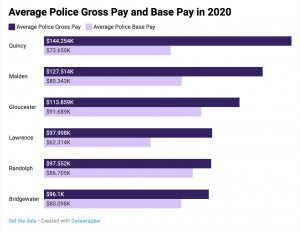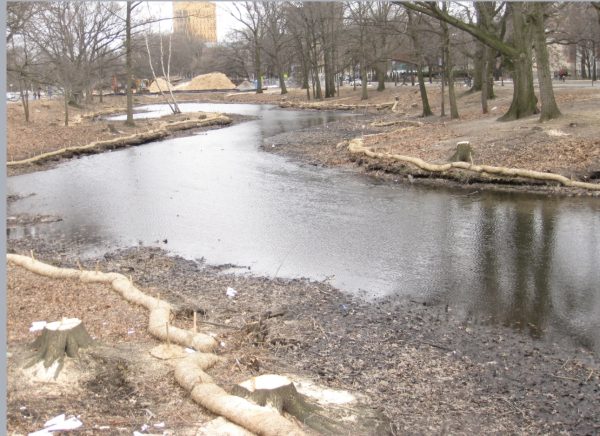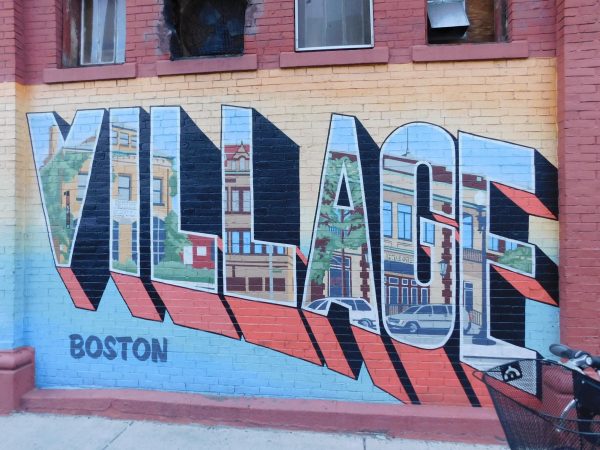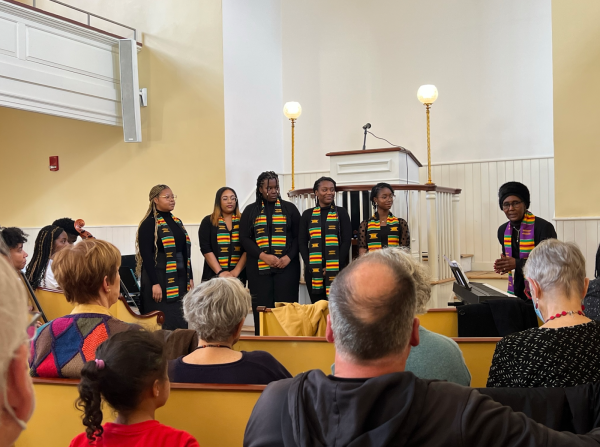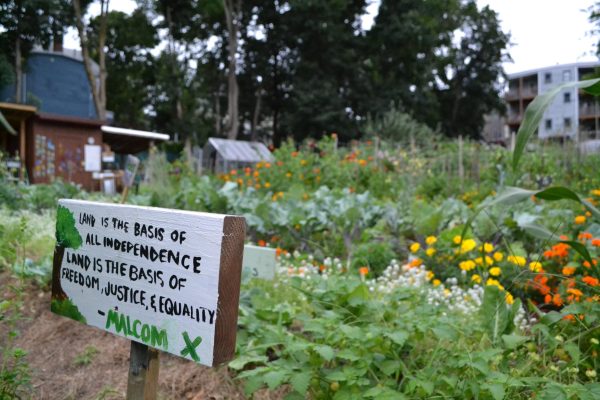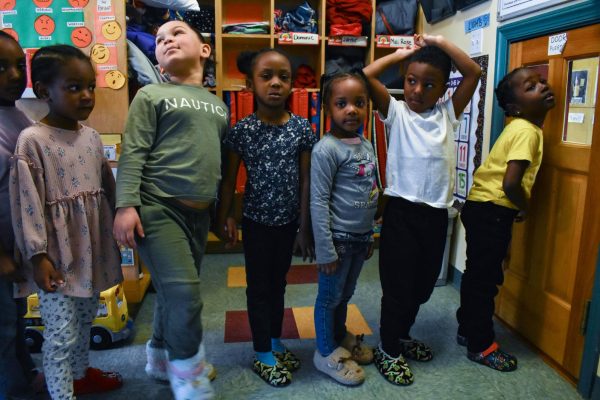Boston faces a shortage of medical interpreters
“Many clients would greatly prefer a doctor with whom they share a common language, but those doctors are in high demand”
March 17, 2023
As immigration to Boston increases, the need for medical interpreters intensifies.
“There’s a growing need at this time in Boston right now,” said Lisa Morris, a medical interpreter and trainer at the University of Massachusetts Chan Medical School. “There are many hospital managers and supervisors and different agencies who contact me all the time in looking for interpreters.”
According to World Population Review, Boston’s foreign-born population has grown from 20% to 27% since 1990 and keeps rising. The review also noted that the majority of population growth in Massachusetts is attributed to immigrants, who have played a vital role in the state’s growth over the past decade.
In 2016, the Boston Planning and Development Agency calculated that the largest immigrant population is Dominican, as they make up approximately 24% of Boston’s foreign-born population, followed by Chinese with 11%.
Maggie Nazarenus, a senior program and contract manager for the International Institute of New England, said that language barriers are one of the biggest challenges for immigrants when dealing with medical cases.
“A majority of our clients do not speak English well enough to make medical appointments or speak to doctors in English, so they have to use interpreters or get help from friends and family,” Nazarenus said. “Many clients would greatly prefer a doctor with whom they share a common language, but those doctors are in high demand.”
Language Connections, which offers language interpretation courses, released the top nine most in-demand languages for Medical Interpreting Certification in Massachusetts, including Spanish, Arabic, Haitian Creole, Portuguese, Cape Verdean Creole, Russian, Mandarin Chinese, Cantonese Chinese and Vietnamese.
Suzanne Lee, the founder of the Chinese Progressive Association, stressed that having interpretations available in hospital settings is the main issue concerning Chinese patients. Currently, she says, people are more inclined to go to the South Cove Community Health Center, or SCCHC, which provides primary care to Asian communities in the Greater Boston area, “because all the nurses and doctors speak Chinese there.”
Morris recalled her class experience and how she noticed that, even for people who are good at English, speaking to a doctor can still be very difficult.
“I have a young Vietnamese girl in my class and one of my classes, and her English is quite good. But at certain times, she still struggles with finding the right word,” said Morris. “That’s when an interpreter is a benefit to have because if you are struggling to find that word, and you want to describe to the doctor how you’re feeling, they’re at a loss without that word.”
Since the pandemic hit in 2020, the demand for medical interpreting has spiked unprecedentedly. This has brought intense challenges to the medical interpreter centers in Boston.
“We’re trying to get the right people to meet the demand because you can’t just, as you know, hire a bilingual person,” Morris said. “It has to be someone who’s trained and understands the language of medicine as well as the skill of being.”
To ensure a professional service, a medical interpreter in the United States is required to complete a minimum of 40 hours of training and possess the certifications for both English proficiency and another primary language.
“In my case, the company that I started working with in the US provides a very thorough training, and for you to become a medical interpreter legally, you need to pass exams that are very thorough,” recalled Juan José de León, a medical interpreter at Boston Medical Center.
With this upward trend of demands, medical interpreters are also facing a heavier workload.
“You can see I can take care of maybe like 20 patients a day from Boston Medical Center,” said de Leon. “And during the pandemic, things are very stressful because of everything that has happened. For example, we were taking a huge amount of calls for COVID cases. It turns really stressful.”
But those challenges can never stop de Leon’s passion for his job. He said that being a medical interpreter is meaningful work.
“It means a lot when you’re interpreting for a patient who doesn’t understand how serious their condition is,” he said. “Breaking the gap of the language of communication that you break in the barrier that makes you feel that you’re doing you have any good input.”

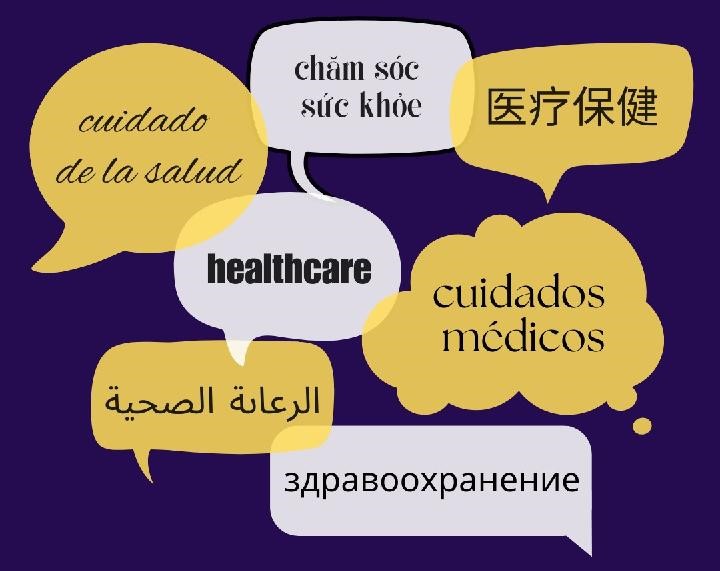

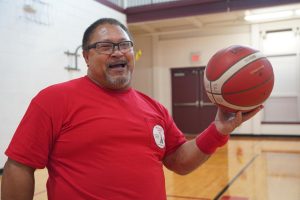
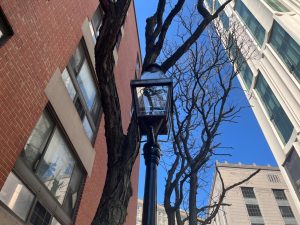
![Worcester, MA — Pearson’s recent piece “Lipstick on a Pig” contends with her self-perception. The title of the painting came to her first, “fixating in [her] head quite a lot,” Pearson said.](https://thescopeboston.org/wp-content/uploads/2024/03/2-300x200.jpg)
